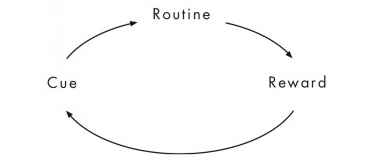It is a rare and special book that helps you with how to think in addition to what to think.
And the more I work in product, the more I realize the importance of honing cognitive skills in the form of frameworks and mental models as a way to structure the information and world around me to ultimately find opportunities.
Each of these books has given me a unique perspective on the world and helped me think better. If I could go back in time to when I was just starting to do product work, here are the books I’d read.
1. Jobs To Be Done: Theory to Practice, by Anthony Ulwick
Of any of the books I’ve read related to product, Jobs To Be Done was the most revelatory and empowering in terms of giving me a new and hugely impactful way of thinking about the world and how to create solutions.
The idea that someone hires a product to do a job, and that there may be many functional, social, emotional, cognitive, and sensory jobs, is a framework that I’ve found helpful for pursuing research, creating solutions, and communicating with others. Product can sometimes feel like nebulous work, but Jobs to Be Done has given me a system that acts as my guiding light into the darkness. I really don’t know how I did product work before reading it.
(It’s worth noting that the beginning and end of this book read like an infomercial for the author’s consulting firm. Skip the ends and go right to the middle — it’s worth it.)
2. The Design of Everyday Things, by Donald Norman
A classic in the design world, The Design of Everyday Things is as much about designing objects and experiences as it is understanding how people think and how those mental models and patterns interact with man-made creations. The success of a product is as much tied in with the core solution being delivered as it is the way in which it is delivered, and that delivery must be understandable by the user. You’ll want to keep a pencil handy as you read this one, as there are countless passages worth underlining and returning to.
3. It’s Your Ship: Management Techniques From the Best Damn Ship in the Navy, by Captain D. Michael Abrasoff
This is usually the first book I recommend to friends when they come to me with management quandaries, and it’s one I return to often because there are so many important concepts. While the primary audience is executives, it provides a framework for successfully interacting with and influencing others. It’s a master class in managing stakeholders, soliciting ideas, inspiring a team, and responding to change. I first read it at my father’s recommendation after starting my first job after college, and I return to it regularly. Thanks, Dad.
4. The Power of Habit, by Charles Duhigg
Power of Habit is fundamental reading for understanding the psychology of habits and how important they are in human behavior. The mental model of habit loops is a powerful one, and I find myself constantly asking how I can both tack onto existing habit loops and create new ones in the products I create.
5. Hooked: How to Build Habit-Forming Products, by Nir Eyal and Ryan Hoover
After you’ve read Power of Habit, I suggest continuing on to the Product-specific version that is Hooked, which has a much-deserved place in the Product Canon. Chock full of examples of how to deploy habit loops within interaction design, this is a book that can give a team shared vocabulary and set of frameworks for creating a habit-forming product.
6. Start With Why, by Simon Sinek
If the how is what’s important when it comes to thinking, it’s the why when it comes to communicating a product vision. Whats are exciting to come up with, but they’re rarely inspiring to the user, to stakeholders, or to the team you work with. And whats are also usually too specific: understanding of user needs and how best to serve them is an ever-evolving concept, and by anchoring too early to a what, you can lock yourself into a solution that is several steps below what could be its most optimal version given your current knowledge. Start with why, and see where it takes you.
